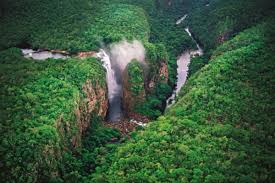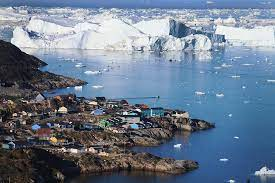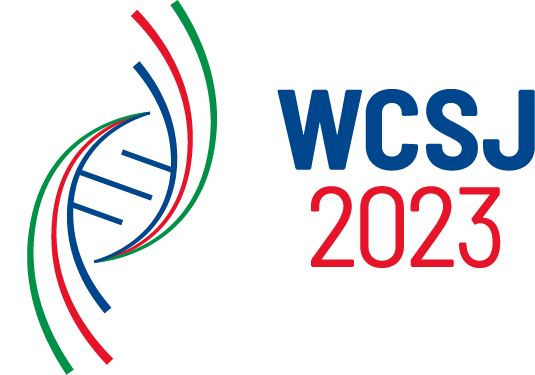Keynotes/plenaries
Tuesday March 28
Keynote – Biodiversity
Keynote Moderator: Andrés Roldan
Keynote Speaker: Brigitte Baptiste
Exclusive Plenary – Giving & taking scientific advice: why inclusiveness matters
Organized by WFSJ, FRQ-INGSA, and SciCom
This high-level panel brings together speakers from four continents to examine models of how scientific evidence feeds into policy-making and the tensions that can arise between scientific information and societal and political directions. Countries large and small, developed and developing, are expressing greater interest in implementing ‘science diplomacy’ through politics for the purpose of representation, cooperation, resolving disputes, improving systems, and securing the right to science for citizens and our most vulnerable populations.
Moderator: Kai Kupferschmidt
Speakers: Dr Ndumiso Cingo, Gustavo González, Prof. Rémi Quirion, Soledad Quiroz
Exclusive Plenary – News from Amazonia: Conserving bio-cultural ecosystems
The Amazon is the Earth’s largest remaining rainforest. It provides one-fifth of the world’s fresh water, is home to the planet’s most diverse collection of wildlife, provides life-giving resources to local people and Indigenous communities. And importantly, the region plays a vital role in mitigating climate change. Although the last decade has seen progress in the sustainable management of Indigenous lands and protected areas of the region, significant threats remain. Our panelists will discuss key threats and share how local and national governments, Indigenous communities, NGOs and the private sector are working to conserve the Amazon basin to benefit local and global communities.
Moderator: Avecita Chicchón
Speakers: Rodrigo Botero, Ane Alencar, Sandra Valenzuela, Manuel Pulgar Vidal
Wednesday, March 29
Keynote – Climate change: How to embroider the risks that put the stability of the most vulnerable at risk
Keynote Moderator: Ximena Serrano
Keynote Speaker: Paola Andrea Arias Gómez
Exclusive Plenary – Trust in Science: Confidence in research: global implications for researchers and the media
Science and its practice are undergoing rapid change, and the pandemic has transformed scientific endeavour in a number of ways – giving it greater prominence and recognition, but creating higher expectations around pace and certainty. Navigating huge quantities of information, finding relevant research, knowing what can be relied upon and tying together quality insights has been made harder for researchers, as well as the media. This discussion will unpack the drivers of confidence in research and discuss the role that different sectors, including journalism, can play in supporting a credible research ecosystem. What are potential solutions that can support scientific research and communications communities in a way that ultimately improves research integrity and public confidence in science?
Speakers: Vera Novais, Ochieng Ogodo, Dante Cid, Sergio Cristancho, Andrés Roldan
Exclusive Plenary – Diverse forms of knowledge: Why they are vital in tackling climate and biodiversity crises
To address the climate-driven crises threatening the planet’s natural resources and biodiversity, some organizations are searching for solutions in a broader, more inclusive way. This panel will explore how the co-production of knowledge through diverse forms and sources of information can result in a greater impact in helping us to adapt to climate change and other forces threatening the natural world.
Moderator: Nicolas Bustamante Hernandez
Speakers: Barbara Fraser, Marilez Tello, Juliana Sánchez Castellanos, Luisa Fernanda Bacca Benevides
Thursday, March 30
Exclusive Plenary - Open Science
Open science combines various movements, practices and actions that aim to make scientific research from all fields accessible to everyone for the benefits of scientists and society as a whole. By promoting science that is more accessible, inclusive and transparent, open science furthers the right of everyone to share in scientific advancement and its benefits as stated in Article 27.1 of the Universal Declaration of Human Rights. This session will introduce the UNESCO Recommendation on Open Science, which recognizes communication as essential for truly open and equitable science. Panellists will discuss the steps that countries and science actors are taking to transition to open science in different contexts. Participants will be asked to help develop guidance on nurturing effective open science journalism: What role does journalism play in open science? How can the transition to open science support science journalism?
Moderator: Ruth Francis
Speakers: Laura Helmuth, Antonio Copete, Guillermo Anlló, Yesenia Olaya Requene
Exclusive Plenary - Energy Security
Energy security in the context of the global energy crisis and maintaining climate change aspirations in line with countries' development priorities.
Moderator: Ricardo Mejía Gutiérrez
Speakers: Kirsten Haupt, Gustavo Vivero
Exclusive Plenary - Challenges to food security in the face of global catastrophe risks
In times of crisis and global risks, very few issues have as many factors feeding into them as food security. The integrative measures envisaged by various global players link the actions that are needed to meet the challenges we face. These should be considered in terms of technology, economics and security to ensure the future of food security, but also how science validates the environmental the environmental impact and guarantees the viability of the processes.
Moderator: Mandi Smallhorne
Speakers: Jenny Wiegel, Juan Fernando Zuluaga, Thomas Hartung
